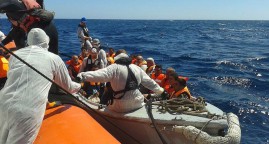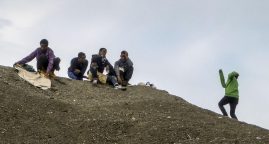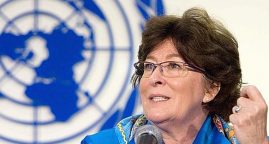“Inaction is sometimes more costly than action.”
Since the Arab Spring the situation of the Muslim world is experiencing a bloody evolution. The Syrian desert has become a battlefield between Sunnites and Shiites, the proponents of moderate Islam and fundamentalists.
Instability in the region has led to the deaths of nearly 250,000 people and to the displacement of nearly 4 million refugees.How can the internationalization of an initially local conflict be explained? Does the European Union, which is directly concerned by the terrorist threat from this region, have a role to play in the political process? If so, in what way?
Interview and response elements with Jean-Pierre Filiu, professor at Sciences Po (Paris), also teacher at the universities of Columbia (New York) and Georgetown (Washington). He recently published “The Arab Revolution, ten lessons on the democratic uprising” by Fayard.
Read the full article on the Robert Schuman Fundation website
Related Articles
The Order Of malta increases its efforts to assist refugees arriving in Europe
09/15/2015. With its network of 80 thousand volunteers worldwide, the Order of Malta is participating in the enormous efforts being made to offer medical care, accommodation and basic necessities to the thousands of people in flight.
Global Views on Immigration and the Refugee Crisis
09/15/2017. Three in four (75%) in 25 countries around the world believe that immigration has increased in their country over the last five years, according to new data from the Ipsos Global @dvisor survey.
Highlighting ‘positive impact’ of migration key to changing policies, public opinion un envoy
04/28/2017. Ms. Arbour is tasked with working with Member States as they develop a first-ever global compact for safe, orderly and regular migration.





